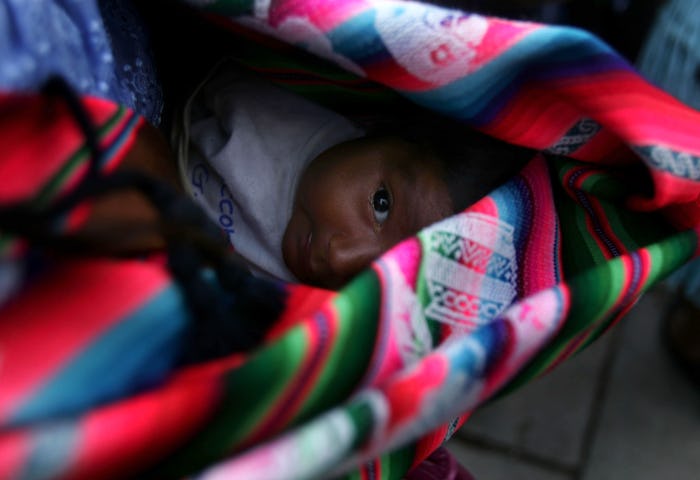Life

Why Blaming Minority Moms For High SIDS Rates Is Wrong
Unfortunately, minority women face way too many levels of discrimination. As Equal Pay Day made clear, while women as a whole still lack equality, the pay gap is much wider for minority women, and that's not the only thing they have to fight to overcome. Recent studies have shown that, while the overall rate is down, SIDS rates are still higher among black, Hispanic, and Native American babies than in their peers. But that doesn't mean anyone needs to start pointing fingers at other mothers, because mom-shaming shouldn't be a thing — and it's just one reason why blaming minority mothers for high SIDS rates isn't right.
According to the Centers for Disease Control and Prevention, SIDS rates among American Indian/Alaska Native and non-Hispanic black infants were almost twice as high as those of white babies. And while infant mortality is down among all racial and ethnic groups, a report by the CDC indicates, "the highest infant mortality rates were observed among infants of non-Hispanic black women." However, research has also shown that black mothers are less likely to breastfeed, and to be given the proper resources needed to prevent SIDS, and any other kind of infant death. Why? Because even though it's 2017, racial equality still has a long way to go, so really, if you're going to blame anyone, blame the system.
For example, some cities initiate safe sleep campaigns in order to help reduce the risk of SIDS, like in Baltimore, Maryland. There, hospitals are covered with resources reminding mothers of the ABC's of SIDS prevention: "alone, back, crib." However, not all hospitals are equipped with such resources. And, according to Children's National Health Systems, "African American babies have a 2-3 times greater risk of dying from SIDS as Caucasian babies," so the correlation between a lack of resources for mothers who need it and high SIDS risk is the next logical leap.
Many mothers aren't able to afford proper cribs, or Pack-n-Plays, which is another factor of SIDS deaths. However, some states are beginning to implement baby box programs, distributing a sort of care package to mothers. The boxes include information on safe sleep practices, as well as diapers, wipes, and a small mattress and fitted sheet perfect for newborn babies. Currently, only three states are prepared to distribute baby boxes: Ohio, Alabama, and New Jersey. However, if the program works to reduce SIDS rates (which it likely will), other states may (hopefully) join in.
The truth of the matter is that not all mothers are equipped with the same resources that more privileged mothers have. And losing a baby to SIDS is a horrible experience, so casting blame to moms based on their race is the absolute wrong way to steer the conversation. Instead, more focus should be drawn to the proper allocation of resources, knowledge, information about sleep safety, and proper care for infants and the mothers who love them.